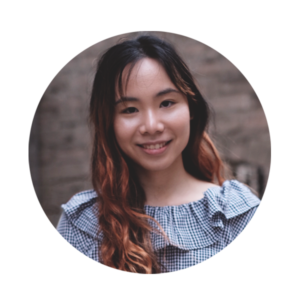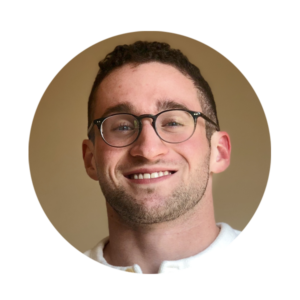
Congratulations, Charlotte, on being named as an ACAMH Young Person’s Ambassador. Please could you tell us a bit about yourself?
My name is Charlotte Howdle and I am a fourth year medical student at the University of Cambridge. I have an interest in mental health, particularly of young people and have spent the last two summers working within Professor Tamsin Ford’s psychiatry research team. Alongside this, I also play the violin and when I am not working, I am usually dashing between concerts.
What does being an ACAMH Young Person’s Ambassador mean to you?
ACAMH produces a wide array of material with the aim of recognising and disseminating evidence-based practice. Their membership primarily includes practitioners and clinicians across the globe. As a young person’s ambassador, I hope to promote the work of ACAMH to an even wider audience; particularly amongst students, young medical professionals and interested young people. By doing this, the research methods supported by ACAMH will become more widely known to young people and encourage them to get involved in the organisation at an early age.
What excites you about a career in child and adolescent mental health?
First, I am excited to work with children and adolescents on a daily basis. It is vitally important to promote good mental health and wellbeing in young people as having these mechanisms lays the foundation for coping during life and its challenges. In addition, the field of child and adolescent mental health is very quickly evolving as new evidence-based practice is published. I look forward to having a role as a doctor where I can be involved in embedding this research into clinical practice.
What have you found useful to assist your own mental wellbeing?
Allowing myself time to breathe during the day! Life as a medical student is so hectic that I now build myself time in my schedule each day to do activities that allow me to switch off from the fast pace. Whether that is playing my violin, cooking a nice meal or just watching some TV, I find that this time out enables me to better cope with stress in the day and I feel much less worn out when it reaches a Friday!
Why should young people interested in a career in mental health get involved with ACAMH?
ACAMH produce blogs, podcasts, live webinars and research journals containing evidence-based mental health research done by leading experts in their field. Young people interested in a career in mental health should get involved in ACAMH to access all this content both for interest and to explore different areas of child and adolescent mental health research.

Congratulations Jessica on being named as an ACAMH Young Person’s Ambassador. Please could you tell us a bit about yourself?
I’m Jess, a penultimate year medical student at King’s College London who recently undertook a Master’s in Psychiatry at the University of Cambridge for my intercalated year. I am passionate about raising awareness of health inequalities and methods to tackle them, which is how I became particularly interested in mental health. I was a founding member of the Black & Minority Ethnics in Psychology and Psychiatry (BiPP) Network and ran events to discuss men’s mental health, barriers to service use in BME communities and the effect of racism on mental health – the complex relationship between intersectionality and mental health is often overlooked. My Master’s research project focused on the relationship between parent and child mental health and my future work will explore the risk and protective factors for mental health disorders in young people during COVID-19.
What does being an ACAMH Young Person’s Ambassador mean to you?
It’s an amazing opportunity to bridge the gap between young people, clinicians, and researchers. Being a young person who is a researcher and WILL be a clinician, I hope I can bring a unique perspective to the role, and promote the events and research published through the association journals to those who may be interested but not exposed to such information. I hope that this role helps contribute to not only raising awareness but taking action for young people’s mental health.
What excites you about a career in child and adolescent mental health?
What has always attracted me about child health is the opportunity to intervene early on in their lives which can influence the trajectory of their lives and all those who come after them. However, child mental health disorders have been one of the only ‘disease groups’ that have continued to rise despite huge strides in research regarding genetics, risk and protective factors and treatment options. A career in child and adolescent mental health not only involves diagnosing and treating children for mental health problems but it presents a whole host of new challenges such as how to offer high-quality care with less and less funding, how to mitigate life events and circumstances out of your control as a clinician and considering a child as a person at the intersection between many different environments that influence their well-being such as school, home and the online world. I like a challenge and I think this a career that will allow me to disrupt the status quo and change the lives of children and families.
What have you found useful to assist your own mental wellbeing?
Taking part in things that I truly enjoy and make me feel useful have been vital to my well-being. I often go to the gym and attend classes with friends (and we’ll have a lovely brunch after – we call it ‘move and food’) which is a perfect chance to ensure I’m getting some physical activity into my week and enjoying quality time with friends. I make sure to have passion projects such as mentoring students to get into medical school and writing blog posts on social media about my medical school journey to help others achieve their goals. This keeps me feeling fulfilled and has allowed me to network with some amazing individuals = more friends to spend quality time with!
Why should young people interested in a career in mental health get involved with ACAMH?
ACAMH is a great way to network with the best clinicians in the field and stay updated with the cutting-edge research that is shaping clinical practice. It is also a chance for you to voice your opinion (or amplify the voices of others) on some topical problems in child and adolescent mental health that need diversity and innovation to solve.
Do you have any social media handles that you would like to share for people to get in touch with you?
You can connect with my via Instagram, Twitter, and LinkedIn
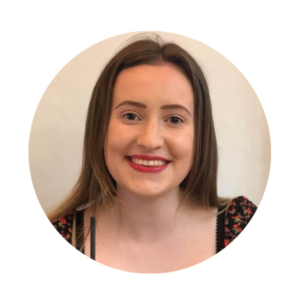
Congratulations Emily on being named as an ACAMH Young Person’s Ambassador. Please could you tell us a bit about yourself?
Thank you so much! My name is Emily and I am a final year medical student at the University of Exeter. I have been interested in a career in child and adolescent mental health since the beginning of medical school and have pursued this interest by undertaking research projects in several different areas such as neurodevelopmental disorders, learning disabilities, and the mental health of children and young people with chronic conditions. I was also a Royal College of Psychiatrists ‘Psych Star’ during the academic year 2020-2021 and used my bursary to attend lots of conferences on child and adolescent mental health. I am really looking forward to my paediatrics and psychiatry attachments later on this year.
What does being an ACAMH Young Person’s Ambassador mean to you?
I am delighted to be an ACAMH Young Person’s Ambassador and am very excited to promote a career in child and adolescent mental health. I really resonate with ACAMH’s vision to raise standards in the understanding and management of child and adolescent mental health conditions, and like how research is a huge focus of their work. I can’t wait to get more people involved with the organisation!
What excites you about a career in child and adolescent mental health?
A career in child and adolescent psychiatry would allow me to use my compassionate and inquisitive nature to understand the physical, mental, social and behavioural aspects of mental health in young people. The ability to help young people at their most vulnerable and hold their trust is an enormous privilege and responsibility. This demanding yet fulfilling career would allow me to forge meaningful, therapeutic relationships with young people and their families and work collaboratively with them towards a treatment goal.
What have you found useful to assist your own mental wellbeing?
Studying medicine can place rather a lot of strain on your mental health as you are exposed to lots of difficult situations. I find swimming (both in the pool and in the sea) and coastal walks to be really mindful activities that help me to process things I have seen on placements without dwelling on them too much. I also believe in the saying ‘a problem shared is a problem halved’, as I have found talking to people about upsetting experiences from placement really helpful.
Why should young people interested in a career in mental health get involved with ACAMH?
I have been a long-time follower of ACAMH on Twitter and I am astounded by just how much work the organisation does. From publishing journals such as the Journal of Child Psychology & Psychiatry and Child & Adolescent Mental Health, to running conferences, online CPDs, training events and masterclasses, there is content available to suit a wide variety of interests and levels of experience.
Do you have any social media handles that you would like to share for people to get in touch with you?
I am really happy to connect with new people on Twitter. You can contact me via my Twitter handle.

Congratulations Marc on being named as an ACAMH Young Person’s Ambassador. Please could you tell us a bit about yourself?
Hi, my name is Marc Daniel Ferger, I’m 23 years old and a 5th year medical student from Germany. In addition to my studies, I am a research fellow at the Group of Biological Child and Adolescent Psychiatry led by Prof. Dr. Julian Koenig at the University Hospital of Cologne. My broad research interests include the investigation of neuroendocrine systems and their impact on trauma-related disorders, especially non-suicidal self-injurious behavior, in children and adolescents. I’m passionate about drug discovery and clinical trials since there is a high unmet medical need for the treatment of children and adolescents with psychiatric disorders. With my research, I aim to contribute to a better understanding of the brain mechanisms underlying stress and behavior, and to the identification of new potential biomarkers and novel, effective pharmacological therapies for child and adolescent psychiatric patients. In addition to conducting evidence-based research in child and adolescent psychiatry, it is very important for me to promote good and modern education and make the discipline visible to both students/trainees and society. For this and many other reasons I’m involved in the Trainee Organization of the German Society of Child and Adolescent Psychiatry and I’m very honored to have been elected president this year to help shape the future of child and adolescent psychiatry.
What does being an ACAMH Young Person’s Ambassador mean to you?
As an ambassador, you stand for the organization, and that is a fantastic thing for me with the ACAMH because I can fully identify with the organization and its goals. For me, ACAMH represents exactly what I like about child and adolescent psychiatry in general: a multi-professional team with the common goal of improving the mental health of children and adolescents- everyone with their own talents- in research, clinical practice, education, or policy. To be a part of this team as an ambassador in the next year is a great honor and privilege for me and, at the same time, a new task I am really looking forward to. I am especially excited to connect with many great people.
What excites you about a career in child and adolescent mental health?
Because it is simply fun and really fulfilling, you can make a positive impact on the lives of young people every day! Not everyone can say that about their work… And what’s more, you don’t do it alone, but in a fantastic team. As I have just said, for me, it is a field characterized by collaboration in everyday life. Collaboration between different professions, like doctors, psychologists, teachers, sports- and music therapists, the list could go on and on… But it is also the collaboration with children and adolescents and their parents, which makes the work so varied. There is a saying: Happiness is the only thing that multiplies when you share it and I think this really applies for working on the wellbeing of young patients as well.
What have you found useful to assist your own mental wellbeing?
There are three main columns for me: First, I try to organize my week so that I always do enough things that I enjoy. Second, and this is even more important to me, I try to find an environment that places a high value on the topic of mental health. Specifically, for example, when choosing a supervisor, I pay attention to how stress is dealt with, what work requirements and limits there are, and what help is available when I struggle. And third, if I struggle, I talk about it with others and don’t keep it to myself. With friends and family, on the one hand, and that is why my second point is so important, with supervisors or colleagues.
Why should young people interested in a career in mental health get involved with ACAMH?
For the same reason why someone who likes to play soccer should join a soccer club! The ACAMH is like a meeting place for many people who have as much fun as you do to make a difference in the mental health of children and adolescents. At various ACAMH events, you can meet fantastic colleagues and maybe some future collaboration partners. It has a translational spirit between research and clinical practice and especially for students, it is a great opportunity to get an overview and learn new things, for example, by listening to the podcast.
Do you have any social media handles that you would like to share for people to get in touch with you?
Yes, I’m on Twitter! Just drop me a line via my Twitter handle.
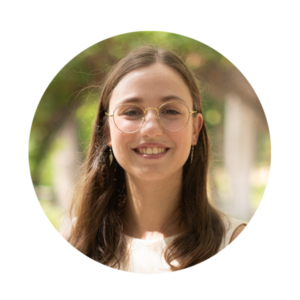
Congratulations Chiara on being named as an ACAMH Young Person’s Ambassador. Please could you tell us a bit about yourself?
Thank you so much! My name is Chiara, I’m 25 years old and I’m from Malta. I’ve always been very passionate about mental health, and after graduating from my Masters’ Degree in Health Psychology I started working within the National Health Services in Malta in the Child and Young People Mental Health Services. It has now been 3 years since I have been working there and I can say that my drive and vocation to help improve the mental health of children and young people has continued to grow.
What does being an ACAMH Young Person’s Ambassador mean to you?
It’s a great honour! I really believe in the values and ideas of ACAMH and what it stands for. Especially after being involved in many events with ACAMH Malta, I truly believe that together we can make great advancements in child and adolescent mental health. I really hope that through this amazing opportunity I can start contributing to the cause more directly!
What excites you about a career in child and adolescent mental health?
First of all, I believe that there is a very long ways to go to improve the field of child and adolescent mental health, as it has been neglected for a long time. However, I have met incredible professionals along the way, especially through ACAMH, that have made me realise that together we can really make immense strides. I am excited by the prospects of what’s to come and I think that the possibilities are endless. There is so much we can do in this field, and the impact we can have on society in general and future generations when working with the mental health of children and adolescents can be so rewarding. I very much look forward to experiencing all this throughout my career.
What have you found useful to assist your own mental wellbeing?
Working in mental health can be very draining and challenging. I have found that spending time daily, on my own, in prayer, meditation and reflection is crucial to keep myself grounded. I also practice a lot of gratitude and try and spend time in nature when I can. Exercise is also very important for me and I have recently taken up running, which has been quite fun!
Why should young people interested in a career in mental health get involved with ACAMH?
Well, the opportunities are endless! There is so much we can contribute to this field, and the journey when pursuing a career in mental health is so personally and professionally rewarding. I feel that the energy, enthusiasm and innovative minds of young people are extremely suited to the field of mental health as these qualities are exactly what we need to move forward, and ACAMH is the perfect platform to enable that!
Do you have any social media handles that you would like to share for people to get in touch with you?
You can get in touch with me via my Twitter handle.
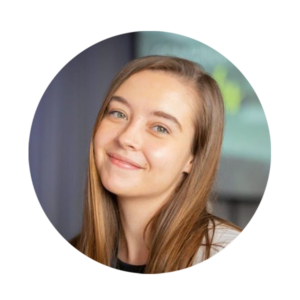
Congratulations Clara on being named as an ACAMH Young Person’s Ambassador. Please could you tell us a bit about yourself?
Thank you so much! I am Clara, I am a junior doctor from Brazil pursuing a career as a child and adolescent academic psychiatrist. I have always been interested in psychiatry and mental health during my medical school years. Mental health was a constant theme in some of my favourite novels; The Bell Jar, Mrs. Dalloway, and The Hour of the Star. The suffering these young women went through is something that struck me. So when I joined medical school I was already curious about mental health research. I initially began assisting in research with adults suffering with anxiety which made me realise many mental health problems start in childhood, sparking my interest for this period of development. Currently, my main research interests and projects are related to epidemiology psychiatry, understanding if the eating disorders prevalence increased or diminished in young girls and why and neurodevelopmental disorders such as ADHD. I am also interested in wellbeing and how specifically it was affected during the COVID-19 pandemic.
What does being an ACAMH Young Person’s Ambassador mean to you?
It is truly an immense honour and a privilege – in all honesty, it is a mix of sometimes I can’t believe I was offered the position with loads of excitement to be able to promote the association values and evidence-based child and adolescent mental health and wellbeing. I have always followed ACAMH work, especially through the association journals: JCPP, CAMH, and JCPP Advances. Last year, at the ACAMH Awards, I had the incredible honour of being awarded Undergraduate Clinical Trainee of the Year, and got to know more in greater depth about ACAMH and its work. It is really unique as it gathers all relevant parties: the children and adolescents, parents, teachers, stakeholders and academics, in promoting the best possible mental health practices. I feel very humbled and excited to be able to play a small part in it.
What excites you about a career in child and adolescent mental health?
Despite the long-standing funding issues affecting CAMH service provision, I do believe it is a promising moment to pursue a career in child and adolescent mental health. Personally, regarding research, we reached a point where important longitudinal studies that started a while ago have collected multiple data points, and hopefully soon will be publishing their findings. Open Science grew too and the number of resources and databases available are increasing, for instance, regarding this, the Catalogue of Mental Health Measures is an amazing initiative. Besides, the possibility to conduct online surveys and interviews expanded research reach and diminished costs, so hopefully, in the near future we will also have more studies in underserved areas. Last but not least, regarding service provision and design, finally a reform attitude is being observed and young people and their families are effectively a part of the process of redesigning services. So, despite the difficulties CAMH services have been facing for a long time now, I do believe the future is promising.
What have you found useful to assist your own mental wellbeing?
One of the things that is helping me the most lately is doing Yoga. I feel it is very important to sometimes disconnect from work (despite really loving doing research) and Yoga is the moment where I take a pause and am offline completely. The academic environment is not always the healthiest as there is its fair share of rejections and frustration. Sometimes it is still hard when a paper gets rejected but two things that helped me in this process. Firstly, realising it is not personal, some reviews actually provide very useful comments to improve the research. Secondly, when sharing rejections with my colleagues, I quickly realised it happens with everyone, even with Professors, so it really is a part of the process. Sometimes it does not feel that way because we often only share our accomplishments, so it is more common to see people celebrating the good rather than sharing what didn’t work out.
Why should young people interested in a career in mental health get involved with ACAMH?
ACAMH has a myriad of resources to support your learning and career progression in mental health. Most people know the traditional journals and they are amazing but there are also tons of events with world renowned experts and conferences – most are online, so it is possible to participate anywhere in the world and many are free. If you are interested in communicating science to the public, ACAMH recently relaunched The Bridge – our online magazine which shares the latest research advances in an accessible way and also promotes young people’s perspectives on latest research and services. If you are keen on podcasts, ACAMH also has a weekly one. To resume, ACAMH has something for each type of learner and is one of the most complete associations when it comes to promoting best evidence and best practice.
Do you have any social media handles that you would like to share for people to get in touch with you?
Yes! I have a twitter account @ClaraGFaria1 where I talk about academic life and share mental health related events!
Listen to our podcast with Clara ‘From University to Research: A Conversation with an Aspiring Academic Psychiatrist’
Thank You to our Young Ambassadors of 2022-2023
